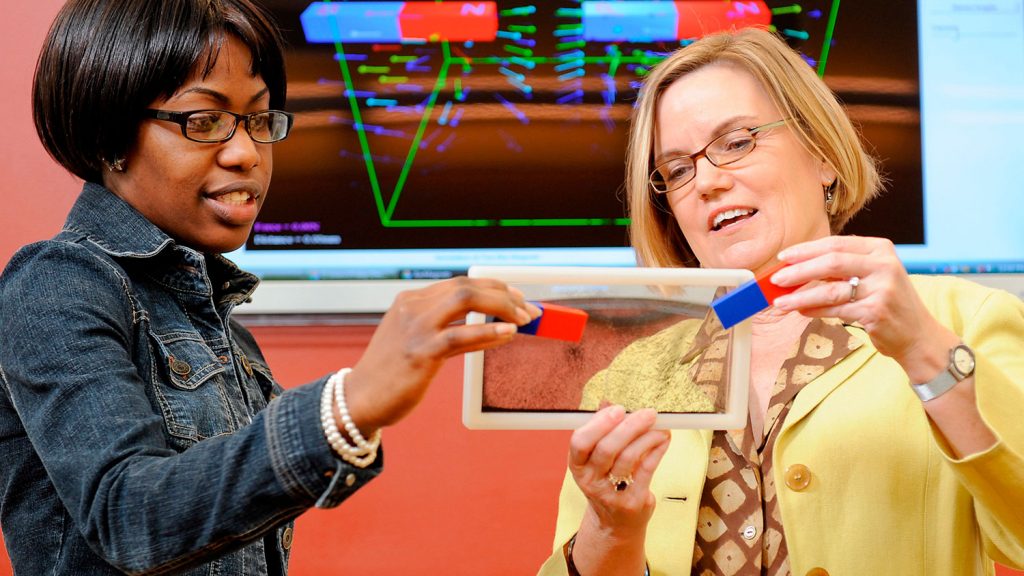Learning and Teaching in STEM, Ph.D.
The PhD in Learning and Teaching in STEM (Science, Technology, Engineering, and Mathematics) is designed to produce scholars and learners dedicated to addressing the challenges of providing high quality STEM education to all students through a rich variety of organizations and innovative methods of delivery. Graduates from this program forge new ground in developing theories, designs, and practical solutions for future generations. This degree has three concentrations: Mathematics and Statistics Education, Science Education, and Engineering and Technology Education.
All doctoral degrees in the College of Education require a minimum of 72 graduate credit hours beyond the bachelor’s degree. Most doctoral programs in the College of Education require a minimum of 60 graduate credit hours beyond an approved master’s degree.
Doctoral Concentrations
Engineering and Technology Education
Graduates of our program become rising leaders in engineering and technology education in K-12 formal and non-formal settings. Through scholarly pursuits in the field, learning and teaching, and public policy they take positions as scholars, supervisors, teacher educators, non-formal science/engineering educators, entrepreneurs, designers, and as faculty members in institutions of higher education.
Mathematics & Statistics Education
The Mathematics and Statistics Education concentration develops scholars who address issues related to the theory and practice of K-16 mathematics and/or statistics education. Students develop expertise in cutting-edge technology to bring about digital transformational approaches to learning, teaching, and assessment for a globally connected world.
Science Education
Graduates from our program become state and nationally recognized leaders in science education. You will have the opportunity to work with nationally recognized experts in many facets of science education research and practice.


